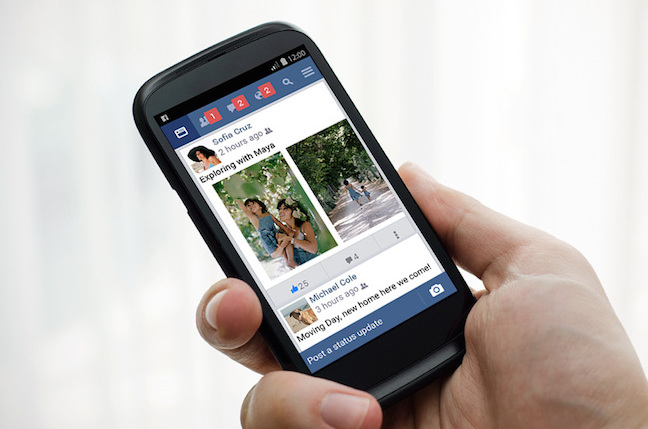This is a bit of an older article, but I am sometimes asked about this, so I will post the information and original link.
------------------------------------------------------------------------------------------------------------------------
July 27, 2011 (Bloomberg) -- When Yuta Moriya was offered Apple
Inc.’s 613-gram (22-ounce) iPad by his employer last summer, he
envisioned a future free of lugging his laptop around for client
visits. He was wrong.
“I used to have to carry my laptop, a charger and some
brochures,” said Moriya, 29, a used-car salesman at Tokyo-based
Gulliver International Co. “After the iPad, I carried the iPad,
a charger for the iPad, the laptop, the charger for the laptop
and the brochures.”
Salarymen like Moriya are reluctant to embrace iPad tablets,
the fastest-growing segment in the computer industry, because
they
aren’t light enough or functional enough to replace laptops
in Japan. For each tablet shipped to corporate customers in
Japan, dozens will be sold in the U.S. and western Europe
through 2015, according to estimates by Framingham,
Massachusetts-based research firm IDC.
“Japanese businessmen already tend to carry around light
laptops because they’re on the train so often,” said Masahiro
Katayama, a PC group manager at IDC. “
IPads are not suited for
inputting and processing data, so people end up having both
their laptops and iPads.”
An Apple spokesman in Tokyo referred queries about Japanese
iPad sales to Softbank Corp., the iPhone maker’s partner in
Japan. Fumihiro Ito, a spokesman at Tokyo-based Softbank,
Japan’s third-largest mobile-phone carrier, declined to comment
on its iPad sales in the country.
Coffin-Sized Capsules
Tokyo salarymen prefer lighter, sleeker products because
space is so scarce in a region with 36 million inhabitants. Some
hotels offer lodging in coffin-sized capsules instead of rooms,
and typical whiskey bars in the Yurakucho and Shinjuku districts
are only big enough for about a dozen customers at once.
According to Tokyo-based Kakaku.com Inc., Japan’s largest
price-comparison website operator, Acer Inc.’s 1.23-kilogram
Aspire one D250 AOD250-Bb18 ranked highest in customer
satisfaction among laptops purchased in the past year.
“Portability” was one of the characteristics considered.
Four of the five top-rated laptops weighed less than 2
kilograms, according to the website.
By comparison, four of the five “most wished for” laptops
on Amazon.com Inc.’s U.S. website weighed at least 2 kilograms.
All of the top five in Amazon’s U.K. site weighed more than 2
kilograms.
‘Failed’ Business Tool
“In the U.S., it’s clear what the iPad offers with its size
and weight, but in Japan, iPads fail to distinguish themselves
as a business tool from lightweight laptops,” said Ichiro
Michikoshi, an analyst at research firm BCN Inc. in Tokyo.
Gulliver, which has distributed about 300 iPads to
employees, isn’t giving up on tablet computers. It plans to give
out 1,500 more in the summer as part of a company-wide
transition to tablets, said Noriko Mitsui, a spokeswoman at the
used-car dealer chain.
Tablet computers are more suitable for watching movies and
listening to music than writing reports and crunching data on
spreadsheets, Michikoshi said.
Most business users in Japan who purchased tablet computers
found them less useful than they initially expected, according
to an April survey of 450 workers by research firm IID Inc. Of
those polled, 88 percent said they bought the product expecting
to use it for work.
Kokuyo’s Dilemma
That’s the dilemma facing Kokuyo Co.’s information-technology department. The Osaka-based furniture maker planned
to give away 1,500 iPads this year to boost productivity yet has
only handed them out to 251 employees, all of whom are still
using their laptops, said Jun Enda, one of the workers receiving
one.
“The iPad on its own isn’t enough to get work done,” Enda
said, citing difficulty in typing e-mails and using
spreadsheets.
As companies such as Kokuyo and Gulliver face difficulties
adopting tablets, corporate shipments of the product in Japan
are projected to grow at a slower pace than the worldwide
average.
Shipments in Japan will climb at a compounded annual growth
rate of 54 percent to 430,340 units by 2015, while growth will
average 89 percent to 7.9 million in the U.S. and 96 percent to
6.8 million in western Europe, according to IDC.
Fastest-Growing Market
Worldwide, tablet computers, led by the iPad, are the
fastest-selling products in the $263 billion PC industry,
according to IDC. That helped Cupertino, California-based Apple
deliver record earnings and boost its market value to the
world’s second-largest behind Exxon Mobil Corp.
The tablet market is poised to jump almost fivefold over
five years to $53 billion by 2015, according to IDC.
The world’s third-largest economy matters enough to Apple
that Japan is the only country where sales are regularly
disclosed by the company. The world’s largest maker of tablets
and smartphones generated $1.51 billion in sales from Japan
during the third quarter, or 5.3 percent of overall revenue.
“Tablets won’t drive away mobile PCs,” said Yukihiko
Shimada, a senior analyst at SMBC Nikko Securities Inc.
“Tablets are good for browsing, but they are not suited for
business as it is hard to use them to produce something.”
Japanese electronics makers are seeking to meet the
preferences of salarymen and other domestic consumers. NEC Corp.
began selling its 699-gram LifeTouch NOTE tablet, featuring a
keyboard, in March.
Sharp Corp. launched its Galapagos line of tablets in
December, aiming to attract domestic consumers by offering
models as light as 220 grams and sporting a trackball so users
can hold the product on one hand during train rides.
Those functions still aren’t good enough for Moriya, the
salesman at Gulliver, who gave his iPad back to the company
earlier this year after a three-month trial.
“The iPad really looked light and convenient in Apple’s
commercials,” Moriya said. “But carrying an iPad on top of a
notebook and brochures was really annoying.”
To contact the reporter on this story:
Tokyo Yuki Yamaguchi
yyamaguchi10@bloomberg.net;
Tokyo Kazuyo Sawa
ksawa3@bloomberg.net
To contact the editor responsible for this story:
Young-Sam Cho
ycho2@bloomberg.net.
 Facebook ditches HTML5
Facebook ditches HTML5
